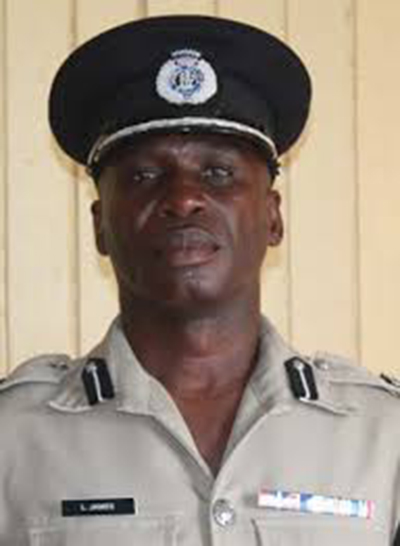Commissioner of Police Leslie James and Deputy Commissioner Maxine Graham have not proceeded on their accumulated leave ahead of their respective retirements as they have had to oversee already planned operations for the general and regional elections, President David Granger has said.
“We are in a very abnormal period of Guyana’s history and the Commissioner of Police was required to supervise a special operation to ensure there was no disturbance of the peace, [that] there was no disorder during the elections period and that is the reason why he is still at his post,” Granger said on Wednesday in response to questions about why they were still on the job.
“As you know, on Friday, sixth of March, there was violence in Region number Five and police had to be deployed. So there was a specific operation which had been planned for that election period and Commissioner Leslie James was required to remain at his post, but the leave that is due will be taken later. It is an administrative decision, not a decision about on any other legal or operational basis but an administrative decision to allow him to supervise the conduct of that operation,” he added.
The President’s position was echoed by de facto Minister of Public Security Khemraj Ramjattan, who said these were special circumstances and that the Guyana Police Force wants to maintain its planned security operations for the elections period, which has been tense and has seen emotions running high in the past. “We want to ensure the police’s operations continue…operations for security and maintenance of the law be maintained,” Ramjattan said.
Questions have been raised as to why the army’s Chief of Staff Brigadier Patrick West, who turns 55 next March, was granted permission to go on pre-retirement leave but James and Graham, who will reach retirement age in December and May next year, respectively, were not.
Police sources yesterday told the Stabroek News that the cases are not unique as seniors are required to complete planned operations before leaving the job and are paid for the days worked.
When APNU+AFC took office in 2015, the government gave notice to public servants and the disciplined forces that they either take annual leave in the entitled year or have it forfeited.
Then Minister of State Joseph Harmon had said that his government wanted people to enjoy their leave and questioned the motives of those adamant about staying on the job.
“The position that we take is that people must enjoy their leave in the year the leave becomes due. The only time you will find people who don’t want to go on leave at all is when they want to sit on something,” Harmon had said.
Granger admitted that it was government’s position that leave be taken when due but explained that there are special circumstances when it was just not possible.
“As far as the rules are concerned, you are correct and instruction was passed that leave should not be accumulated and that all officers in the various forces should enjoy their leave in the calendar year, which it is due. But the reason why it was not done in this case is because of the special operation and the prolonged post-election period, which has made the continuation of that operation necessary,” he said.
He explained that the army and police force were not only two different institutions with distinct duties, but that the law for his appointing persons to the top positions for each were also starkly different.
“The appointment of the Commissioner of Police is governed by separate rules, which differ from the appointment of the Chief of Staff, as I had explained in some detail. I would need to consult the Leader of the Opposition on the selection of a new substantive Commissioner of Police and that had not been done. So the Commissioner of Police cannot be replaced on a substantive basis until that consultation is completed. He comes under an entirely different regime than the Chief of Staff. There is a different Act,” he said.
He said that in the case of the Commissioner of Police, while he makes the appointment, his decision is guided on advice of the Police Service Commission. “As you know, there is a Police Service Commission and I am a responsible for the appointing of the Deputy Commissioners and the Commissioner, but I depend on advice from the Police Service Commission as well and I have not received that advice as yet,” Granger said.
“…I’m saying that we entered in a special period and once that special period comes to an end, we will resort to normal administration within the police force. In the police force, it is abnormal because we are in abnormal time. This is the first time in the history of Guyana that we have not had election results and after over 17 weeks the results have not been declared,” he added.





